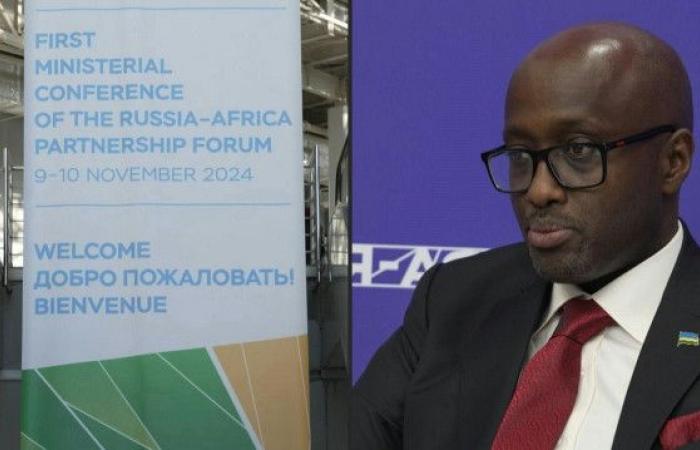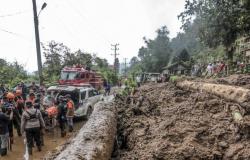“We need nuclear energy”,
Rwandan Foreign Minister Olivier Nduhungirehe said on the sidelines of a Russia-Africa conference in Sochi, southwest Russia.
According to him, hundreds of Rwandan students have obtained degrees from Russian universities in recent decades.
Among them,
“there are those who specialize in nuclear sciences”,
he clarified.
“We hope to be able to train a certain number of scientific executives specialized in this field,”
stressed M. Nduhungirehe.
Rwanda, a small landlocked country in the Great Lakes region of around 13 million inhabitants, produces more than half of its electricity (51%) from thermal sources, ahead of hydroelectricity (43.9%) and solar (4.2%).
It signed an agreement in 2019 to build nuclear power plants in collaboration with Russia’s Federal Atomic Energy Agency, Rosatom.
“We hope that this project will continue,”
said the head of Rwandan diplomacy, specifying that his country would
in general his relations with Moscow, which he describes as
According to him, relations between Rwanda and Russia are based on
“concrete projects, mutual respect and the interests of Africa”.
He said his country sometimes suffered
from some
without naming them: “
We are told what to do, taking into account what we call the moral values of certain countries”
assured Mr. Nduhungirehe.
In August 2024, the Rwandan government announced that it had signed a memorandum of understanding with the American company Nano Nuclear Energy for the construction of small nuclear reactors (SMR), smaller and simpler in construction than conventional power plants.
In September 2023, Kigali authorities signed an agreement with the German-Canadian start-up Dual Fluid Energy to build a civilian nuclear reactor
South Africa is the only country on the continent to have a civil nuclear program, with two reactors in service for more than 30 years.






